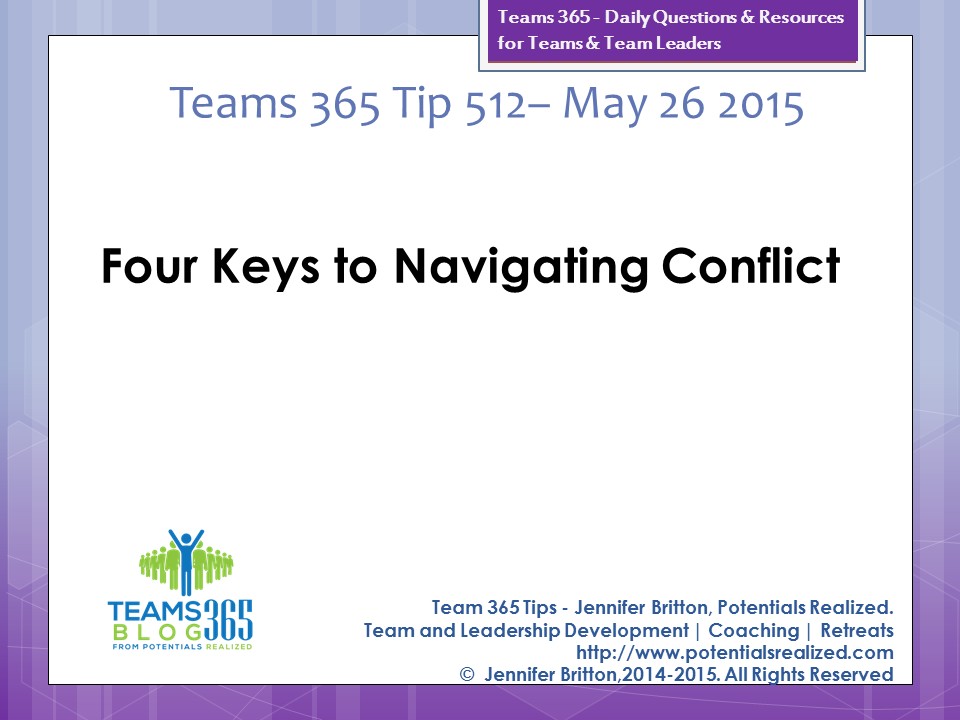- Be proactive and address conflict early on – While easier said than done, many view navigating conflict as very challenging, in part because issues may have escalated even more than at the start.
- Find the common ground – Finding similar vantage points or even “slivers” where you can see “eye to eye” is a starting point in navigating conflict. These mini-windows are opportunities to open dialogue and mutual problem solving, rather than raising walls.
- Recognize that conflict can be a healthy thing when we have the tools to navigate it. Where cultures do not recognize that conflict is a normal and natural part of human relationships, it may be minimized and swept under the rug, or it can be seen as “abnormal” and “vilified” where something is wrong. What is the culture at your workplace around conflict.
- Invest in your skills in navigating conflict. Conflict management is not always well modelled in our work places and families. If this has been your case it can be useful to invest in some professional development and/or mentoring so you have more phrases and even a model or process to follow. Where is conflict management well modelled? What tools and resources are people using?
Have a great day,
Jennifer
Jennifer Britton
Potentials Realized | Coaching Team Leaders
Supporting Team Leaders One Conversation at a Time(TM)

 RSS Feed
RSS Feed





